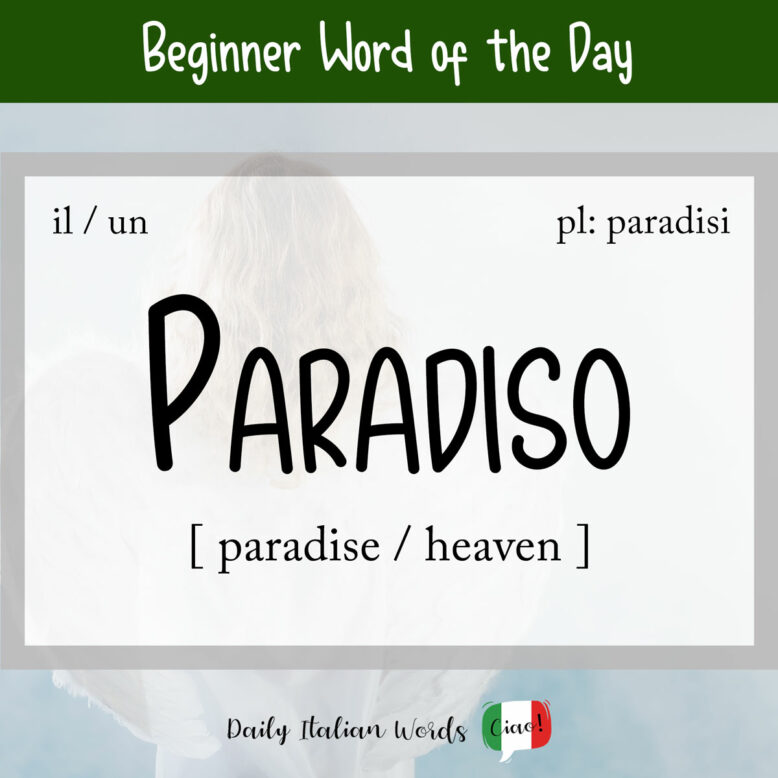Whereas in English, we distinguish between the words paradise and heaven, there is just one word in Italian: paradiso (masculine, plural: paradisi). It comes from the Latin word paradisus which in turn derives from the Greek paradisos.

Paradiso, in the sense of heaven, is the place regarded in various religions as the abode of God, the angels and the good after death. It is often (though not always) capitalised. Below are a few common verbs you’ll see used with this word:
- andare in paradiso = to go to heaven
- meritare / meritarsi il paradiso = to deserve (to go to) heaven
- guadagnarsi il paradiso = to earn (one’s place in) heaven
- volare in paradiso = to die, usually at a young age (lit. to fly in heaven)
- giocarsi il paradiso = to live in sin without repenting (lit: to gamble paradise)
I cristiani credono nel Paradiso.
Christians believe in Heaven.

Another name for the giardini dell’Eden (Garden of Eden) where Adam and Eve lived in the biblical account of the Creation is paradiso terrestre (earthly paradise).
Note: Italians also use the word cielo (sky) to refer to heaven in a metaphorical sense.
Paradiso can also refer to a pleasant, peaceful or enjoyable place here on earth.
Questo posto è un paradiso!
This place is a paradise!

One specific situation where paradiso translates as haven is in the expression paradiso fiscale (tax haven).
A bird of paradise is known as an uccello del paradiso.
Idioms featuring ‘paradiso’
Voler andare in paradiso in carrozza
Literal translation: wanting to go to heaven in a carriage
English meaning: wanting to obtain something with little effort or sacrifice
Avere qualche santo in paradiso
Literal translation: to have some saint in heaven
English meaning: to be well-connected, to have friends in high places
Toccare il paradiso con un dito
Literal translation: to touch heaven with a finger
English meaning: to achieve maximum happiness
Voler entrare / stare in paradiso a dispetto dei santi
Literal translation: wanting to enter / stay in heaven in spite of the saints
English meaning: to enter a place where you are not welcome
Heather Broster is a graduate with honours in linguistics from the University of Western Ontario. She is an aspiring polyglot, proficient in English and Italian, as well as Japanese, Welsh, and French to varying degrees of fluency. Originally from Toronto, Heather has resided in various countries, notably Italy for a period of six years. Her primary focus lies in the fields of language acquisition, education, and bilingual instruction.


